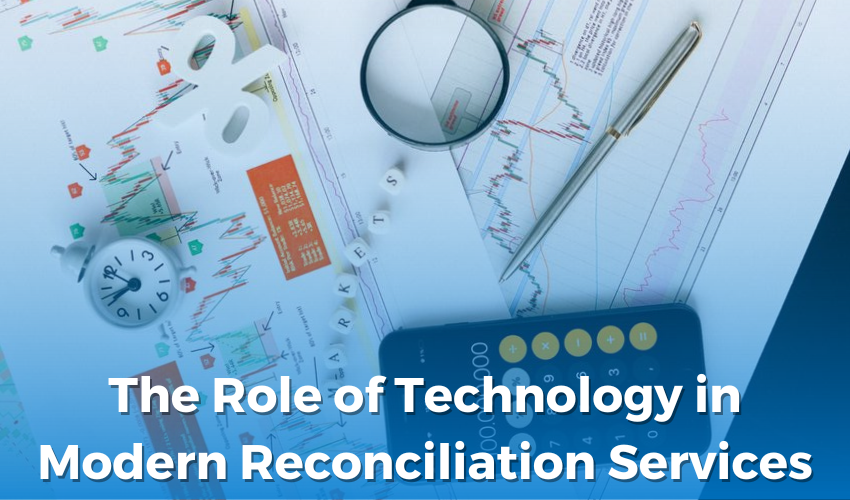

02-01-24
In an era where technology shapes the way we connect, communicate, and navigate the complexities of our world, its impact on various sectors is undeniable. One area where technology is increasingly playing a transformative role is in the realm of reconciliation services. As we delve into the nuances of conflict resolution and healing, the integration of technology offers new avenues for facilitating dialogue, fostering understanding, and ultimately contributing to the modernization of reconciliation services.
Technological Platforms for Dialogue:
One of the key ways technology is influencing reconciliation services is through the creation of online platforms designed to facilitate dialogue among conflicting parties. Virtual spaces provide a neutral ground where individuals can engage in meaningful conversations without the constraints of physical proximity. Video conferencing, online forums, and dedicated platforms offer a secure environment for participants to express their grievances, share perspectives, and work towards common ground.
These platforms also break down geographical barriers, enabling individuals from different parts of the world to participate in reconciliation processes. Whether it's connecting communities separated by physical distance or bridging gaps between international stakeholders, technology expands the reach of reconciliation services, making them more accessible and inclusive.
Digital Storytelling and Empathy Building:
Another powerful aspect of technology in modern reconciliation services in usa is the use of digital storytelling as a means of building empathy and understanding. Platforms such as social media, podcasts, and multimedia presentations allow individuals to share their stories in diverse formats. Digital storytelling transcends traditional boundaries, creating an opportunity for marginalized voices to be heard. By amplifying diverse perspectives, technology contributes to a more comprehensive understanding of the complex issues underlying conflicts. This, in turn, lays the groundwork for reconciliation by promoting a culture of empathy and shared humanity.
Data Analytics for Conflict Resolution:
Advancements in data analytics play a crucial role in enhancing the effectiveness of reconciliation services. By analyzing patterns, trends, and historical data related to conflicts, technology can provide valuable insights that inform the development of targeted interventions. Data-driven approaches help reconciliation practitioners understand the root causes of conflicts, identify potential triggers, and tailor strategies for resolution.
Machine learning algorithms can assist in predicting potential areas of tension and suggest proactive measures to prevent escalation. This predictive capability not only aids in conflict prevention but also allows reconciliation services to allocate resources more efficiently, ensuring a focused and impactful response to emerging issues.
Virtual reality for empathy building:
Virtual reality (VR) technology is emerging as a powerful tool in the field of reconciliation services. This immersive approach goes beyond traditional methods of education and awareness-building, creating a visceral understanding of the human impact of disputes.
For example, VR simulations can recreate scenes from conflict zones, allowing decision-makers, stakeholders, and even the general public to witness the challenges faced by communities. This immersive empathy-building experience has the potential to break down stereotypes, challenge preconceptions, and instill a profound sense of responsibility among those in a position to effect change.
Online therapeutic interventions:
The integration of technology extends to the therapeutic aspects of reconciliation services. Online counseling, support groups, and mental health resources tailored to the specific needs of individuals affected by conflict provide accessible avenues for healing. Technology facilitates remote access to mental health professionals, enabling individuals to seek support in a way that is convenient and confidential.
Online therapeutic interventions also address the stigma associated with seeking mental health services in certain cultural contexts. By offering discreet and personalized support, technology contributes to breaking down barriers to emotional healing, which is a fundamental aspect of successful reconciliation processes.
Challenges and Ethical Considerations:
While the role of technology in modern reconciliation services is promising, it comes with its own set of challenges and ethical considerations. Issues such as data security, privacy concerns, and the potential for misuse of information must be carefully navigated. Additionally, ensuring equitable access to technology is crucial to prevent the digital divide from exacerbating existing disparities.
Ethical considerations extend to the use of VR technology and digital storytelling, where the potential for emotional manipulation and the ethical responsibility of content creators come into play. Striking a balance between leveraging the power of technology and upholding ethical standards is imperative to ensuring the integrity and effectiveness of reconciliation services.
Conclusion
In a world where conflicts persist, the integration of technology into reconciliation services represents a dynamic and promising frontier. From virtual platforms facilitating dialogue to immersive VR experiences fostering empathy, technology offers innovative solutions to age-old challenges. As we navigate the evolving landscape of conflict resolution, it is essential to harness the potential of technology responsibly, with a commitment to inclusivity, ethics, and the overarching goal of building a more harmonious world. The modernization of reconciliation services through technology is not just a trend; it is a transformative force shaping the future of conflict resolution.
Tags : Reconciliation Services













































.jpg)
.jpg)
.jpg)
.jpg)


).jpg)














 Get A Quote
Get A Quote
Leave A Comment